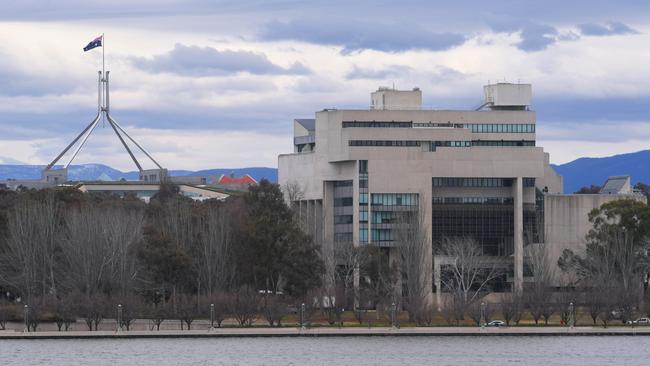
The Australian Taxation Office firstly wants the High Court to give it the power to tax people on income they have not received and will not receive.
And, in a second case, it wants the catch-all section 165 power to be applied, using emails between parties not directly involved in a transaction as evidence to bankrupt people without any cross-examination of the taxpayer about those emails.
No other taxation authority in the Western world would seek such powers — they are reserved for ruthless dictators.
The High Court will determine whether it will hear appeals over full Federal Court decisions that declared clearly that the law of the land did not allow the ATO to exercise such vicious powers.
What makes the situation so dangerous for the nation is that there is no effective appeal system in taxation assessments, unless you are very rich.
It is bizarre that in 2020 the ATO brilliantly executed Josh Frydenberg’s JobKeeper scheme and saved vast numbers of smaller and medium businesses — often the very businesses that it now seeks the power to destroy.
Both appeals involve different cases, but they are linked by the fact that the ATO is spending countless millions of dollars on the cases but will not raise any tax revenue from the legal expenditure.
Rather, both cases are unprecedented power grab attempts, and one is also about covering up a past ATO blunder.
In the first power grab — the Carter case — the ATO wants the ability to attack family small and medium businesses that use discretionary trusts to structure their business affairs. These trusts dominate small and medium-sized family businesses and have the “discretion” to distribute money/profits to beneficiaries (usually family members).
Under law that has operated in Australia for countless decades, the trusts are not required to distribute profits. Retained profits can be taxed in the trust.
In addition, the potential beneficiaries do not have to accept any trust distribution.
The ATO is seeking to tax trust beneficiaries where those beneficiaries have not actually received any money from the trust — that is, they will be taxing people on money they have not received.
Natalie Carter is a mother with two school-aged children. The extended family runs a medium-sized land development business started by her grandfather. The business is structured as a discretionary trust and Carter is a beneficiary. She does not participate in the operations of the business.
In 2014, the ATO decided that, for tax purposes, Carter was entitled to profits from the business/trust even though the trust did not transfer any money/profit to her. To make matters worse, the ATO trust profit assessment ignored significant expenses such as interest, land tax, council rates and contributions — there was no actual profit to distribute.
During the process of appealing to the Federal Court, the ATO forced (garnisheed) Carter and her family into paying the theoretical tax bills, which resulted in the forced sale of the family home. Not surprisingly, the Federal Court applied the long-established law of the land and demanded the ATO pay Carter’s costs.
But with no whistleblower protection for taxpayers, the blood lust in the ATO is rampant and it thinks it has discovered a loophole. No one cares that it will create uncertainty for countless businesses — the very people the government is helping with fast payments and an end to unfair contracts.
The second case where the ATO wants the High Court to hear an appeal is the “gold case” where the ATO bankrupted almost the entire gold refining industry as part of its agenda, which is set out on The Australian website under the heading “Dangers in tax office’s ‘gold case’ appeal to High Court”.
As in the Carter case, the full Federal Court debunked the ATO arguments and applied the law Australians understand, rather than looking for bizarre loopholes. Once again the ATO was forced to pay the costs.
But the ATO still thinks there is a loophole in the law and wants the High Court to agree and so dramatically increase ATO powers beyond anything we have seen in the Western world.
In the “gold case”, among thousands of pages of evidence, there were two emails between people who were not parties to the case. The Administrative Appeals Tribunal did not cross-examine the parties to the case about these emails, but rather simply used them as key evidence to decide in the ATO’s favour.
The full Federal Court took the view of most Australians and declared that, given the group being sued by the ATO was “not a party to the emails, was not cross-examined on the documents and the documents were not the subject of any submissions by the parties, it constituted a denial of procedural fairness”.
Effectively, the ATO requires the High Court to declare such antics as “fair”.
The High Court is our highest legal authority and it will determine the law. But in both these cases it is being asked by a government body to contradict the Federal Court and declare that the law allows what most people (including federal politicians) would regard as unfair practices.





The High Court of Australia will this year determine how large parts of the employment-generating small and medium business sector is to be taxed.